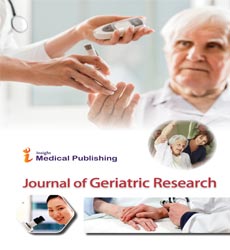Evaluation of Elderly In-Patients needing Palliative Care
Abstract
Background: In the Philippines, four of the major causes of mortality are non-communicable diseases such as cerebrovascular disease, cancers, COPD and Diabetes Mellitus. These conditions require progressive and continuous care in order to have a better quality of life and support for families at the end of life and bereavement. Globally, it is estimated that palliative care is needed in 40-60% of all deaths. Objective: To evaluate elderly in-patients needing palliative care at St. Luke’s Medical CenterQuezon City from January 2019 to June 2019 Methodology: This study is a descriptive cross-sectional study that retrospectively review the Comprehensive Geriatric Assessment of elderly in- patients admitted under Geriatrics Medicine and referrals from other departments. Demographics and clinical characteristics (major life limiting disease, secondary or associated diseases, functional status measured by Palliative Performance Scale (PPS), Hospice eligibility criteria was reviewed. Results: Of the 301 patients who had undergone Comprehensive Geriatric Assessment in January 2019 to June 2019, 41 patients were excluded. Only 260 patients were included. Most of the patients were female N=173 (66.54%) while only 87 (33.46%) were . males; mean age was 81 years old. There were 86 patients (33.08%) with PPS 60%, 57 patients (21.92%) with PPS 40% and 44 patients (16.92%) with PPS 50%. There were 128 patients (49.23%) not eligible for hospice care while 132 patients (50.77%) were eligible. Elderly in-patients eligible for hospice care mostly had dementia/ Alzheimer’s disease (49 patients, 18.85%). Most common cancer needing hospice care was Colon cancer (6 patients, 2.31%). Hypertension (187 patients, 71.92%) is the most common comorbidity for hospice care while the least common is osteoporosis (5 patients, 1.92%). Conclusion: About half of the elderly in-patients in Geriatrics Medicine and referred to the Geriatrics Medicine in St. Luke’s Medical Center-Quezon City need palliative and hospice care. This was due to increased prevalence of chronic diseases such as dementia/Alzheimer’s disease, cancer and stroke/coma.
Open Access Journals
- Aquaculture & Veterinary Science
- Chemistry & Chemical Sciences
- Clinical Sciences
- Engineering
- General Science
- Genetics & Molecular Biology
- Health Care & Nursing
- Immunology & Microbiology
- Materials Science
- Mathematics & Physics
- Medical Sciences
- Neurology & Psychiatry
- Oncology & Cancer Science
- Pharmaceutical Sciences
